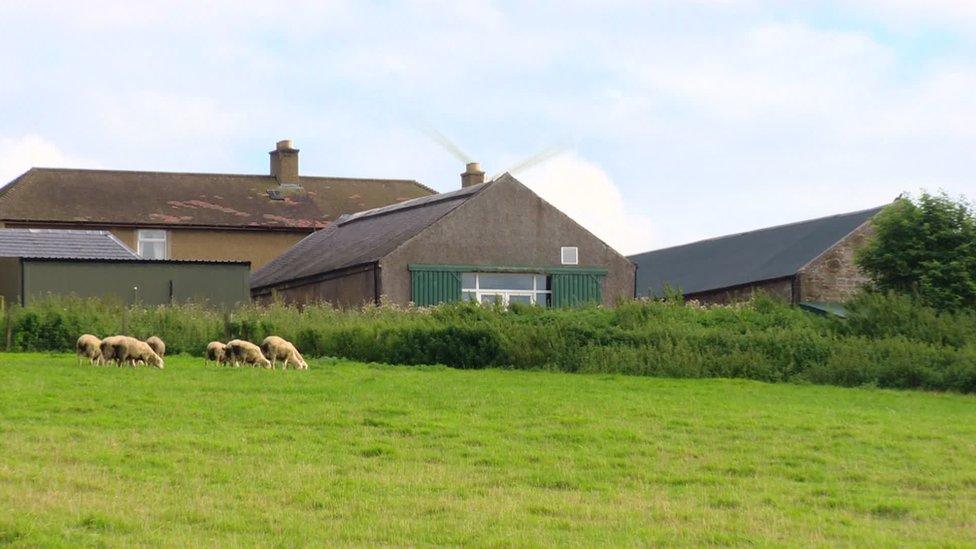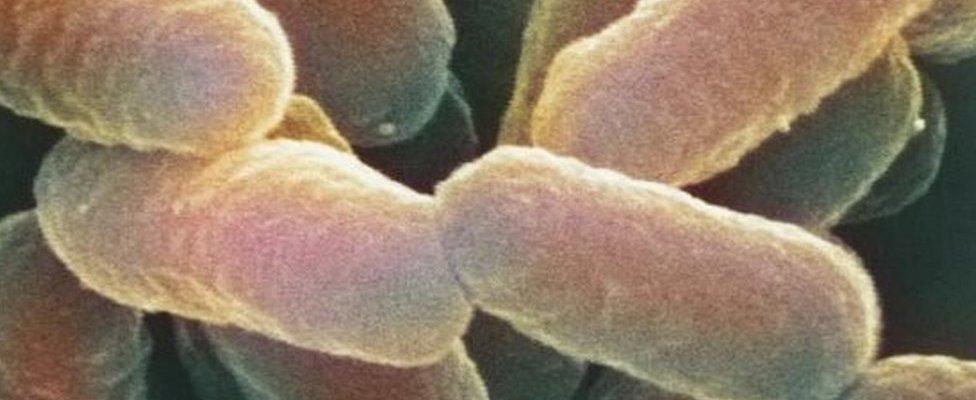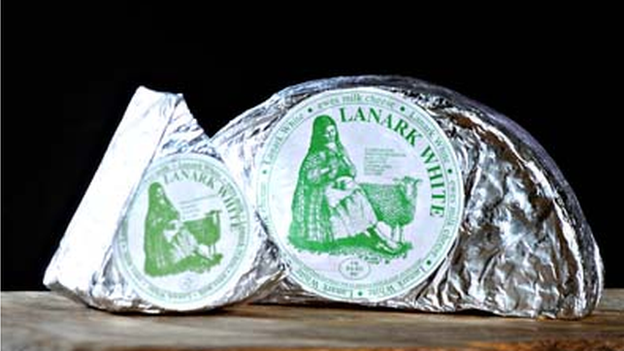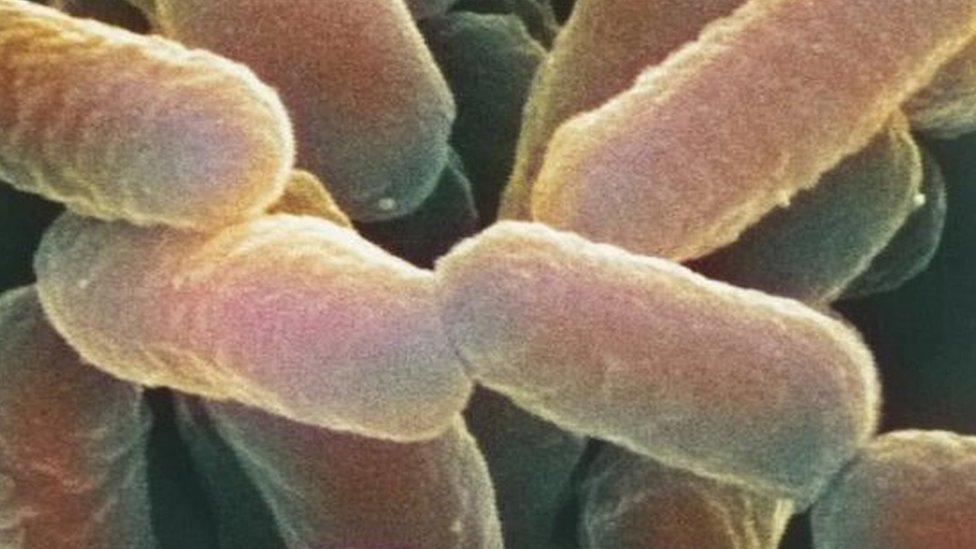Angus E. coli cases 'may be linked' to national outbreak
- Published

Fifteen people infected are known to have eaten Dunsyre Blue
An E. coli infection affecting children in Angus may be linked to the national outbreak, NHS Scotland has confirmed.
A "small number" of children in Angus have fallen ill from the bug and a playgroup has been temporarily closed.
NHS Scotland said initial information suggested there may be a link to an outbreak associated with Dunsyre Blue cheese, made by Errington Cheese Ltd.
Food Standards Scotland (FSS) has issued a ban on all cheese made by the South Lanarkshire-based producer.
Errington Cheese has previously been linked to the E. coli outbreak, in which a three-year-old girl has died.
The company has disputed the evidence and insists its cheese is safe.
The ban involves Dunsyre Blue, Dunsyre Baby, Lanark Blue, Lanark White, Maisie's Kebbuck and Corra Linn.
People have been advised not to eat the cheese, and to return it to the seller.
Two cases with the same outbreak strain were confirmed on Thursday, bringing the total to 22 since July.
The outbreak was initially declared over on 5 September, but the incident management team (IMT) monitoring the outbreak was reconvened when new cases were identified.

Errington Cheese is based on a farm in Carnwath, South Lanarkshire
The chairman of the team, Dr Alison Smith-Palmer, said: "Our epidemiological investigations have identified Dunsyre Blue cheese as the most likely cause of the outbreak.
"To date, the IMT has established that 19 of the 22 confirmed cases had eaten blue cheese prior to becoming ill. Of these, 15 are known to have eaten Dunsyre Blue while others cannot be certain about the brand of blue cheese they have consumed. Investigations are ongoing on the other cases."
Dr Smith-Palmer said a large number of cheese samples had been taken as part of the investigations being carried out by South Lanarkshire Council and Food Standards Scotland.
"These have identified a number of different cheeses produced by Errington Cheese Ltd containing organisms with the potential to cause serious illness including O157 E. coli and toxin producing non-O157 E. coli," she added.
The outbreak in Angus is being investigated by NHS Tayside Health Protection Team and Angus Council.
In a statement, NHS Scotlandsaid: "The IMT are in contact with those managing this investigation and initial information suggests that there may be a link to the national outbreak and investigations are ongoing."
'Serious risk'
Errington Cheese has issued a statement on its website, external, re-confirming its position that its own testing found "no trace" of E. coli O157.
"We have used micro-testing laboratories in the UK and Europe and found no trace of pathogens, we have shown results of all our testing and all local authority testing to date to various microbiological experts which has enabled us to come to this decision," it said.
Food Standards Scotland said it was "fully aware" of the impact of issuing a food alert, but the agency has disputed Errington Cheese's claims that it has found no trace of E. coli in its products.
An FSS spokesman said: "Errington Cheese Ltd has publically commented that E. coli O157 has not been found in its cheese. This is inaccurate.
"Some samples submitted for testing by SLC [South Lanarkshire Council] have tested positive for E. coli O157 and for another (non-O157) strain of E. coli. These organisms are considered a serious risk to public health."

What is E. coli?

E. coli is a type of bacteria commonly found in the intestines of humans, livestock and other animals, and is excreted in faeces.
The O157 strain is a leading cause of food-borne illness and can be particularly dangerous.
The bacterium is generally spread by contaminated food and water but also can be passed among humans.
In people with weak immune systems, particularly young children and the elderly, the infection can cause serious kidney damage, blindness, paralysis and sometimes death.
Symptoms can include abdominal cramps and diarrhoea that may be bloody and people may also experience fever and vomiting.
- Published15 September 2016

- Published10 September 2016

- Published5 September 2016

- Published8 September 2016
